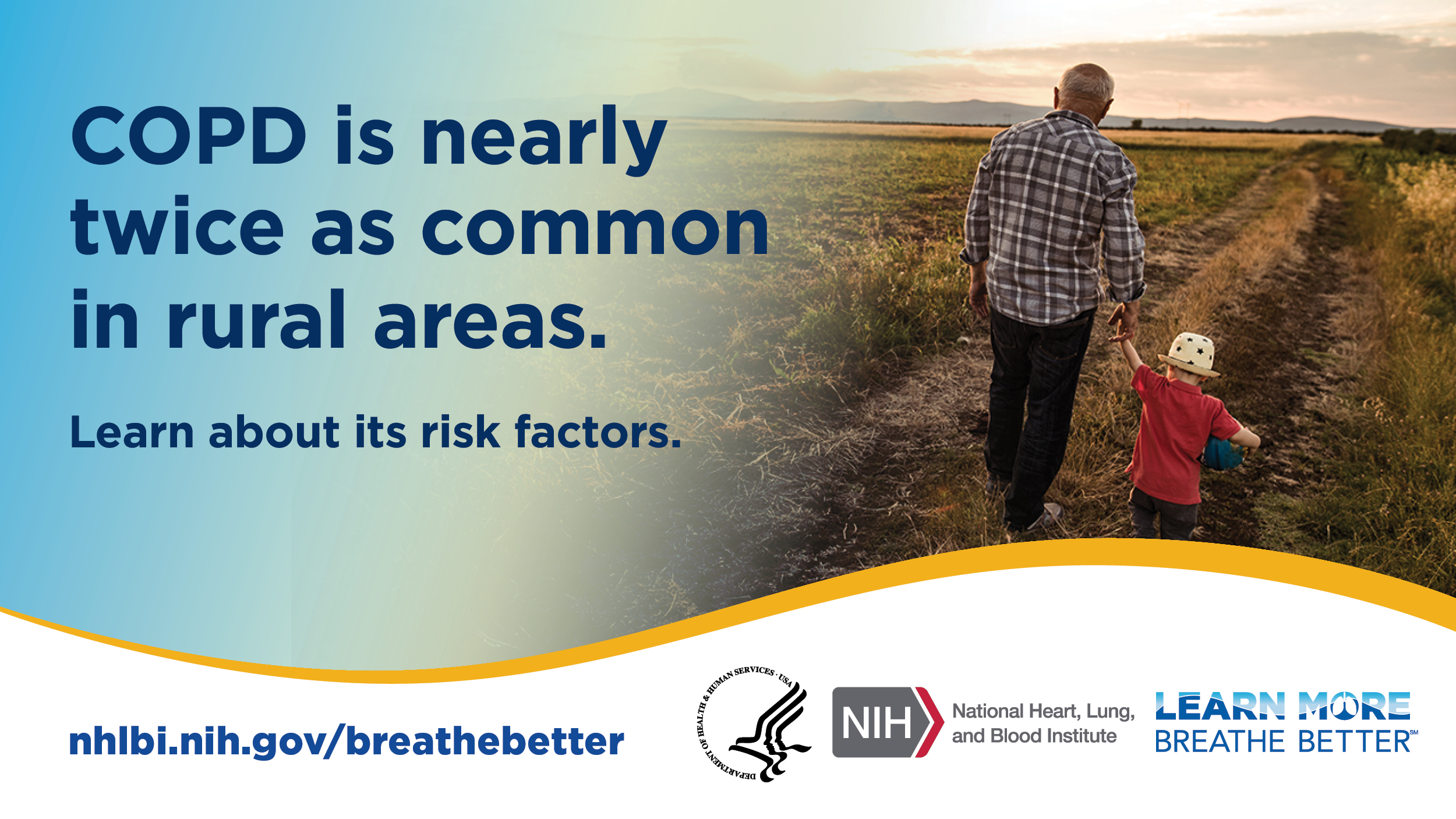
Chances are high that you know someone with chronic obstructive pulmonary disease (COPD). More than 16 million Americans have been diagnosed with this debilitating lung disease and it is estimated that millions more have it and don’t know. This November for National COPD Awareness Month, join Orchard Hospital in raising awareness about COPD.
Whether you’re a patient, caregiver, health care provider, advocate, or researcher, share your perspective. We all have a voice when it comes to COPD and we should use it to help people understand and recognize it earlier, so they can receive treatment to breathe easier.
What is COPD?
COPD is a serious lung disease that over time makes it hard to breathe. Its official name is Chronic Obstructive Pulmonary Disease, but COPD has other names, like emphysema or chronic bronchitis. In those who have COPD, the airways, or tubes that carry air in and out of the lungs are partly blocked, making it difficult to breathe.
Signs and symptoms of COPD such as shortness of breath, chronic coughing, and wheezing often come on slowly, which can delay diagnosis. Often, people mistake their breathing issues as a part of aging or a consequence of being out of shape.
People Who Have COPD:
- Become short of breath while doing everyday activities they used to do with ease.
- Produce excess sputum.
- Cough frequently, or constantly. Some call this a “smoker’s cough.”
- Feel like they can’t breathe.
- Are unable to take a deep breath.
Are You at Risk for COPD? Yes, If You:
Used to Smoke or Still Do
COPD most often occurs in people age 40 and over who are current or former smokers. Smoking is the most common cause of COPD, accounting for as many as 9 out of 10 COPD related deaths. However, as many as 1 out of 4 people who have COPD never smoked.
Have Long-Term Exposure to Lung Irritants
COPD can also occur in people who have had long-term exposure to things that can irritate your lungs, like certain chemicals, dust, or fumes in the workplace. Heavy or long-term exposure to secondhand smoke or other air pollutants may also contribute to COPD.
Have a Genetic Condition Called AAT Deficiency
As many as 100,000 Americans have alpha-1 antitrypsin, or AAT deficiency. They can get COPD even if they have never smoked or had long-term exposure to harmful pollutants.
You can know for sure if you have COPD by getting a spirometry test. Spirometry is a common, noninvasive lung function test that can detect COPD before symptoms become severe. It measures the amount of air you can blow out of your lungs (volume) and how fast you can blow it out (flow). That way, your doctor or health care provider can tell if you have COPD, and how severe it is. The spirometry reading can help determine the best course of treatment.
While there currently is no cure for COPD, early diagnosis and treatment can greatly improve quality of life. National COPD Awareness Month is a great time to encourage others to recognize symptoms and talk to a health care provider.
Once you have COPD, the goal is to live a full, happy, healthy life. This can be achieved despite having the disease! If you’re having lung issues such as chronic cough, mucus, or even general fatigue after performing daily activities, don’t be afraid to call your healthcare provider. The tests are simple, and the treatment is available.
The outpatient AIRE Program (Accessible Intervention and Respiratory Education) at Orchard Hospital is designed to help you gain knowledge of your lung disease, manage your breathing problems and improve your exercise tolerance. In turn, this will help you to achieve your optimal ability to carry out activities of daily living, regain independence and improve your overall quality of life.
The outpatient AIRE program at Orchard Hospital can help you breathe easier and live better.



